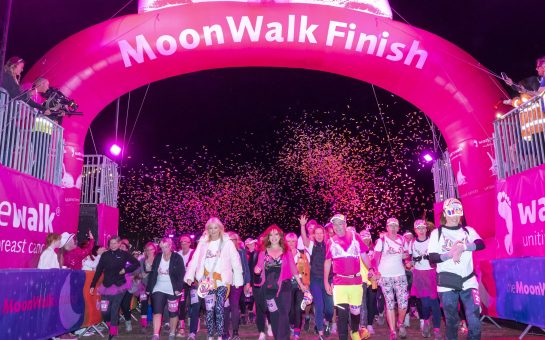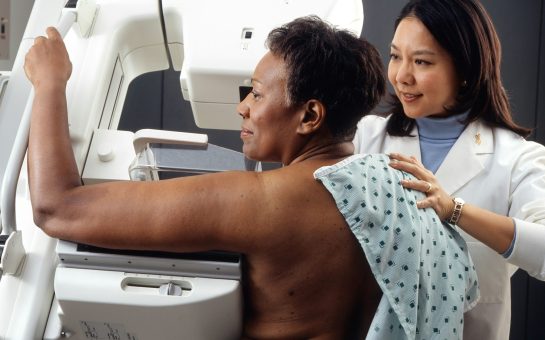Sex workers in south west London can now access their Covid-19 vaccines anonymously via a series of pop-up clinics.
Sex Worker Advocacy and Resistance Movement (SWARM) has teamed up with NHS South West London this month to offer vaccinations to those working in the sex industry in Wandsworth, Kingston, Croydon, Sutton, Merton and Richmond.
How to get the coronavirus vaccine
Sex workers living or working in South West London can use this self-referral form to register for the vaccine.
All you need to provide is a name (any name you choose), your borough and a contact number.
You do not need to be registered with the NHS, and no information will be shared with the police of home office.
A vulnerable population
Sex workers were identified by the NHS as a priority group needing vaccination, but due to there being no register of sex workers, there was an issue when it came to reaching out and offering them the vaccine.
SWL spoke to SWARM’s outreach service coordinator Lydia Caradonna, 23, from Twickenham, about the initiative and the reasons why it was set up.
Caradonna said: “Many workers aren’t registered with GPs and some of us move around a lot.
“So it’s very difficult to reach sex workers as a group, but at the same time we’re very vulnerable to coronavirus because it’s hard for us to do any contact tracing when people don’t give their legal name.
“We can’t really protect ourselves from coronavirus the way that many workers who are working with the public day-to-day can because of the nature of the service.”
As a result, the south west London NHS team and SWARM came together and launched the vaccination service around three weeks ago, and are now looking at expanding it across London.
“It was important for us to just to let people know that they can access the vaccine without giving their legal name or any form of ID, which a lot of people are uncomfortable about doing because there’s a big mistrust of any kind of government program identifying us as sex workers,” said Caradonna.
Why aren’t many sex workers registered with GPs?
Caradonna explained that due to the nature of the work, many sex workers move around a lot which makes it really difficult for them to access sustainable care.
It also means they may not have a fixed address.
Additionally, there are many people in the sex industry who are migrants who may face language barriers and not realise that they’re entitled to healthcare, which prevents them from registering with a GP and being invited to receive the vaccine.
Caradonna also pointed out that there is a big issue with identifying sex workers who are registered with a GP but have not disclosed their sex work due to medical stigma around it.
It must be the sex work
Caradonna said: “Lots of people in the industry won’t disclose their sex work to their GP because they find that it often gets pathologised, or any issue that they have will be linked back to it.
“For example, you could go in for a sore throat that has been long-lasting, and the GP might first think ‘Oh that’s probably related to sex work’ so you just face all sorts of stigma and you don’t access the healthcare that you need.”
She also highlighted the issue of some medical staff putting pressure on sex workers to leave the industry when they might not be in a position to or simply might not want to.
She added: “It just puts on this added layer of pressure when other people try to access GP services. They’re not sure what they’re going to face and there’s just a general sort of distrust of GPs so most sex workers will only engage with specialist services for sex workers.”

The fear of disclosing sex work government bodies
Caradonna explained that, although lots of people are working completely legally, there is a fear amongst many sex workers that any information about their jobs is going to be passed onto other government bodies such as the Home Office.
She said: “There’s also the general fear around having any kind of document with your legal name and your sex work attached to each other.
“There’s a big misconception, for example, that sex workers are unreliable or can’t be trusted around children because of the nature of our work, so lots of people have expressed concerns that social services will get involved and decide that they’re unfit parents, that they’ll be unable to adopt in the future, or that somehow it will be linked to them again in the future when they’ve exited the industry and might be pursuing other careers.
“We also know that there are legal changes, and that there’s a lot of pressure to criminalise certain parts of the industry, so people really don’t want to be linked to something that has a sort of shaky legal status if they think it’s going to come back and harm them later.”
Supporting sex workers during the pandemic
Caradonna explained that the lockdowns, with such a reduction in clients, have shown what the impacts of criminalising clients could be for sex workers.
What they’ve noticed is that reducing the number of clients does not put an end to the demand, but instead forces sex workers to lower their prices and boundaries.
As a result, they have been more likely to take part in unsafe sex practices because they can’t afford to turn them down.
She explained: “It’s been a really really harsh environment for sex workers.
“While some of us have been able to access government support, other sex workers that joined the industry shortly before the pandemic who might not have had the records or weren’t legally registered had absolutely no choice but to continue sex working in really dangerous conditions.”
To support sex workers financially, SWARM set up a hardship fund made up of donations and distributed around £250,000 in grants.
“It was beyond anything we ever expected, but that was really the only targeted support that we saw during the pandemic, that from our own community,” Caradonna added.
Making vaccination more inclusive
SWARM is committed to making vaccination for sex workers as inclusive and accessible as possible.
It has five outreach staff, all of home are either current or former sex workers in south west London, who between them represent eight languages.
SWARM also receives additional support from other translation services such as the NHS language line and organisations like xTalk.
“We’re really lucky that the community itself is so diverse and so talented,” said Caradonna.
“We’re proud to have so many languages represented and it’s really a community effort to be able to reach everyone.”
SWARM hopes to expand to all of London in the near future, so keep an eye out on their website as well as their Twitter and Instagram pages for updates.
[Featured image credit: Shutterstock]




